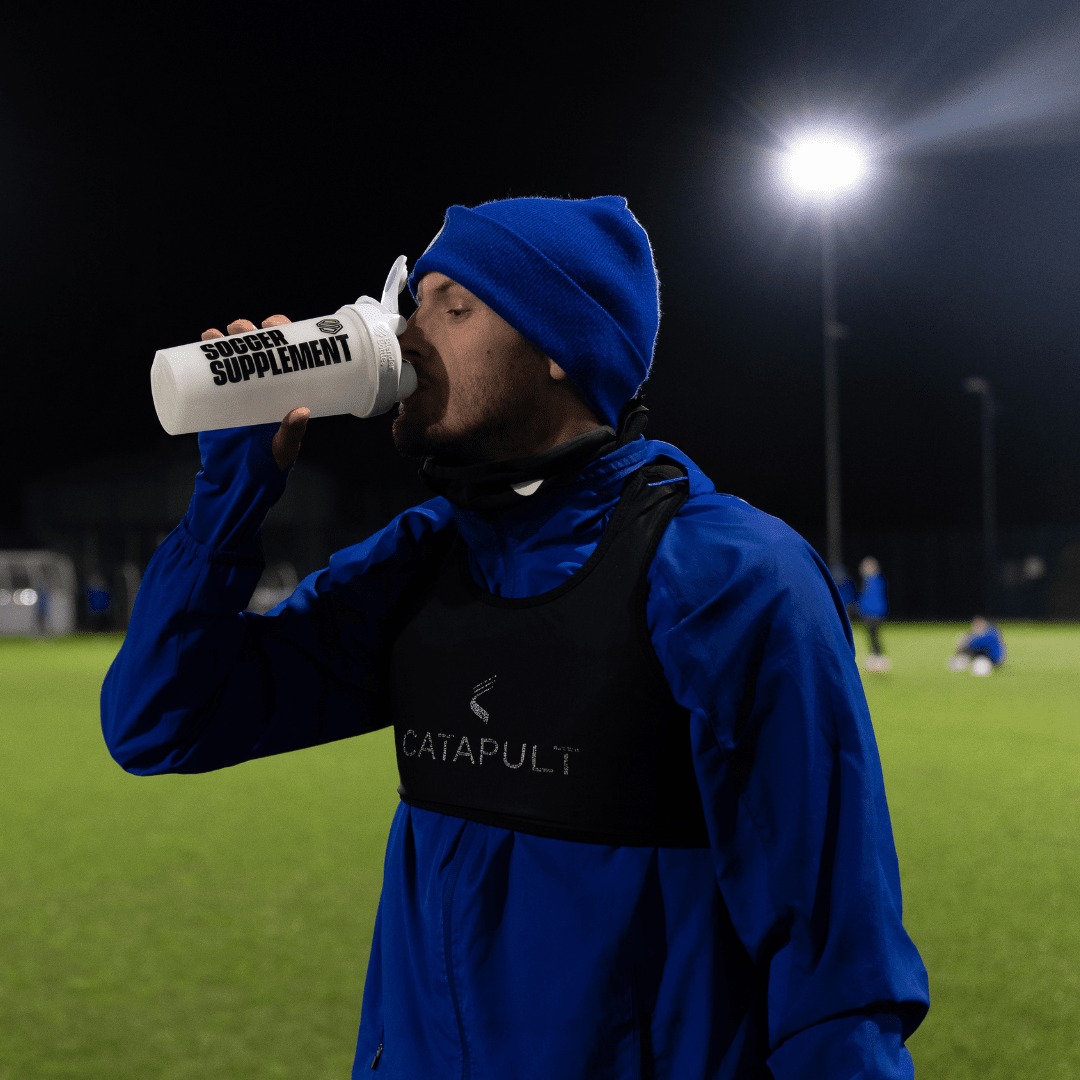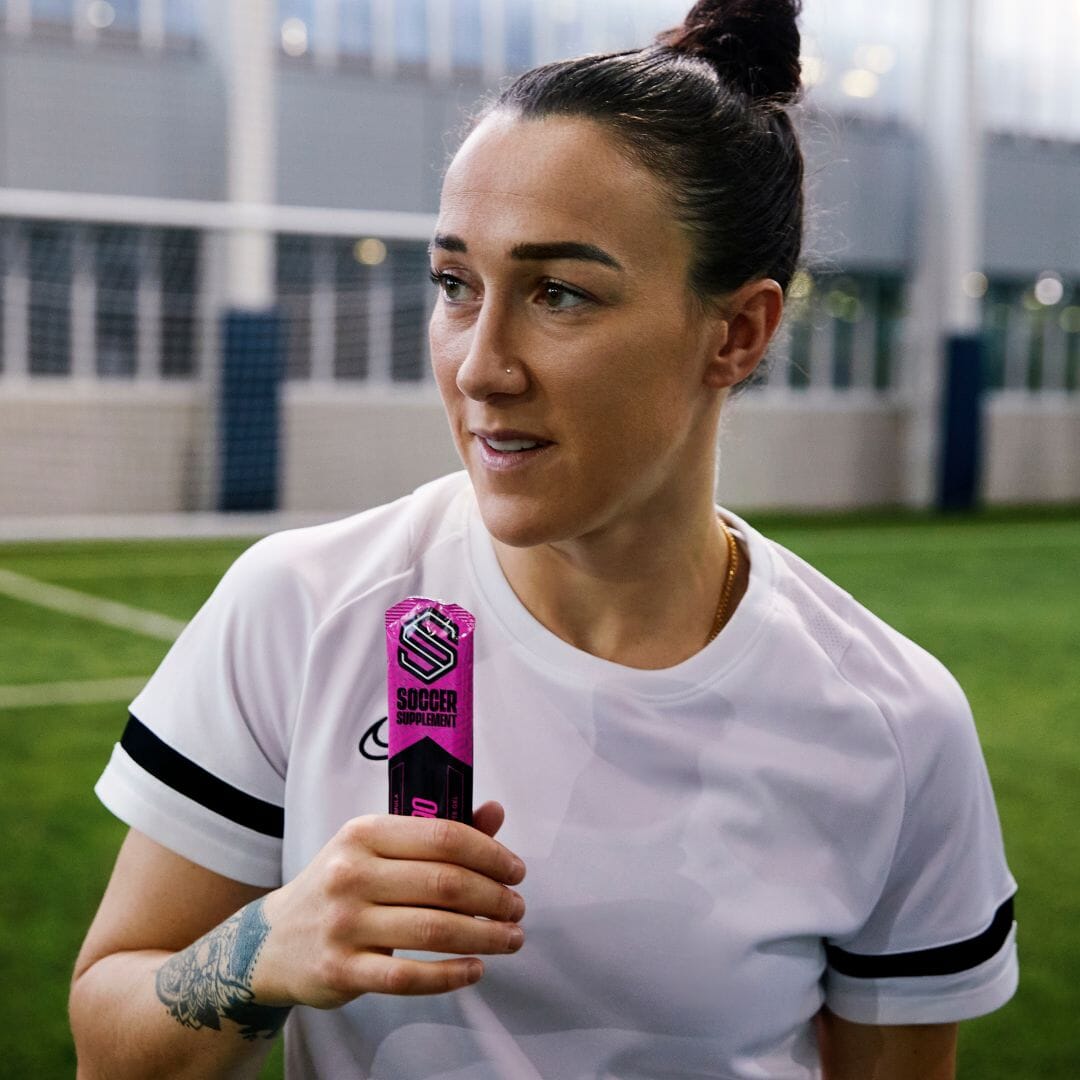Sports nutrition can be pretty daunting if you're just starting, and there is a lot of information about what you should be doing, shouldn't be doing and everything in between ‒ which makes it pretty challenging to work out what to do at all.
For newcomers to sports nutrition, it's all about getting your diet and nutrition right so that you can boost your fitness and your general well-being. Getting sports nutrition right is down to the individual and your training schedule. There's no point in matching your diet and nutrition to a Premier League player if you only train a couple of times a week.
Sports nutrition for football goes beyond ordinary nutrition in that it doesn't just satisfy the dietary and nutritional needs of your body but also the training schedule you follow. It considers your body weight and the amount of exercise you get, and what you want to achieve to enhance your fitness on the pitch. When it comes to nutrition for footballers, there's no “one size fits all” approach. Our guide gives you an overview of how professionals use nutrition so you can apply it to up your game.
Why Is Sports Nutrition Important in Football?
The days of orange slices at halftime being the pinnacle of sports nutrition in football are long gone. As with almost every other sport, footballers need to hone their diet and nutrition to their exercise and training schedule. This will ensure that their performance on the pitch is up to scratch.
But it wasn't all that long ago that football nutrition barely existed. Players would eat fry-ups and even drink lager and champagne before big matches. As the years have passed, footballers have become more like athletes regarding diet and nutrition. Clubs, especially the big ones, have taken steps to make sure that the foods their players eat are healthy, with David Moyes going as far as banning chips from the canteen as the carbohydrate intake was making players overweight.
One of the most significant steps forward for football nutrition was focusing on individual players with different body sizes, physical fitness and exercise regimes. Clubs now use sport science, nutritional advice, and chefs to determine the food and drink their players eat to tailor them to the individual player’s requirements.
Clubs in the top flight like AS Monaco and West Ham make sure that their players get the right amount of protein, carbohydrates and healthy fats to build muscle, fuel their game and ensure a complete recovery between matches. Most clubs now split sports nutrition for football into three main categories:
- Hydration
- Energy
- Recovery
All three categories are essential for players to cope with the intensity of the modern season and keep in shape for the sport. But even in amateur and Sunday leagues, sports nutrition has become a focus for players. While they might not have anybody making sure they're eating and drinking correctly, they tailor their diet to improve their game. They do this for the benefits of nutrition for football, including:
- Better body composition
- Higher intensity training
- Improved recovery
- Lower risk of injury
- Enhanced performance on the pitch
Staying Hydrated
Staying hydrated is a part of everyday life; everybody should drink around two litres of water per day. But for footballers, two litres per day is nowhere near enough when you consider that the average player will sweat 1.1 litres per game. To keep on top of their game and avoid the debilitating effects of dehydration, footballers need to increase their water intake and ensure they're getting enough fluids. The dangers of dehydration, or hypohydration, include:
- Impaired aerobic capacity
- Reduced power
- Lethargy
- Lower cognitive function
- Increased heart rate
- Impaired management of body temperature
Similarly, hyperhydration or overhydration can cause health problems, like increased body weight and potentially hyponatremia. The importance of making sure that you hydrate correctly cannot be overstated, but getting the right amount of fluids is easier said than done. Everybody sweats at different rates, and different climates affect the rate you lose water.
How to Stay Hydrated
On average, professional footballers will run over 10km per game, with amateurs not far behind on 7.8km. During the match, the players will sweat over a litre which means staying hydrated before, during and after the game is crucial.
The difficulty of keeping on top of your hydration is that there is no way of being sure how hydrated you are without access to regular blood tests. While some professional players use prescribed hydration plans that are tailored to their sweat rates, most players rely on regularly drinking water and hydration drinks and being aware of the signs of dehydration, such as:
- Thirst
- Strong-smelling or dark yellow urine
- Body mass changes over 1.1%
- Dizziness or lightheaded
- Tiredness
- Dry mouth, lips or eyes
- Urinating less.
Keeping up Energy Levels
Maintaining your energy levels is vital if you're looking to put in an influential performance in a match or get the most out of training. Athletes in all sports rely on carbohydrates to fuel their performance, but footballers, as football is an intermittent sport, rely on them heavily.
Carbohydrates should be your body's primary energy source and should make up 50-60% of your diet. According to the British Nutrition Foundation, one gram of carbohydrate gives you 3.75kcal or 16 KJ of energy. Once consumed, carbohydrates break down into glucose before being absorbed into your blood. That glucose enters your body's cells with the help of insulin, and your body then uses it for energy. If more glucose is consumed than can be stored, it's converted to fat.
Carbohydrates are split up into two categories: complex carbohydrates and simple carbohydrates. Your body takes longer to digest complex carbs, which makes them a more stable source of energy. While simple carbs digest faster, they still play a part in keeping your energy levels high.
For this reason, professional footballers have a lot of carbohydrates in their diet. But not all carbs are included, and players focus on specific types above others, such as:
- Whole grains
- Fresh whole fruit
- Non-starchy vegetables
- Beans and legumes
- Dairy products
Most players avoid eating refined carbohydrates like white bread, cakes, biscuits and cookies and avoid drinking high sugar drinks and juices.
The biggest issue that players face with keeping their energy levels up is that the body's carbohydrate store is small and gets used up very quickly when playing football. For this reason, a lot of players turn to sports drinks and energy gels. These provide a concentrated source of easy-to-absorb carbohydrates that fuel players throughout the game
Nailing Recovery
Nutrition plays a massive role in the recovery process, whether recovery from a game, training or an injury. It doesn’t matter if you're playing in the Super Cup or a Sunday league; recovery is vital. Ensuring that you eat the right foods after a match or training session is essential for a complete recovery. Failing to recover properly from training or a game can result in:
- Dehydration
- Depleted energy stores
- Muscle damage
- Mental fatigue
Players on teams at all levels are often required to play multiple games a week, which means the period between games can be as short as two days. This means that knowing how to recover effectively is vital.
How to Recover Properly
Professional players tend to split the recovery process into three stages:
- After the final whistle, replenishing carbohydrates is a must. Players will usually do this with an easy-to-consume recovery product.
- After showering and changing, players will have a small snack that is carb-heavy like a sandwich, cereal bar or fresh fruit. Players may also incorporate a hydration supplement to maximise refuelling.
- At home, players may have another meal or a protein-rich snack before getting a good night’s sleep.
While physical recovery is important, players shouldn’t neglect the mental recovery required. Playing a full game of football can be tough and so getting enough high-quality sleep, relaxing and spending time with family and friends can be a massive help for recovery.
Ready to Up Your Game?
Nailing your nutrition is key to playing at the top of your game. It’s often said that preparing for football is 80% nutrition and 20% training, so getting your nutrition right will get you on the right track. Check out our guide to creating a footballer’s diet.
But it’s important to remember that you need to work out a suitable regime for yourself. Following somebody else’s regime, regardless of how good they are, might not work for you as it is all dependent on position, body weight, height and the level you play at.
Do you want to use nutrition to help you up to your game? Check out our starter pack with a range of supplements to try including Hydrate90, Fuel90 and Focus90. If you're looking for tips and tricks to boost your performance on the training ground, sign up for our new training plan.






